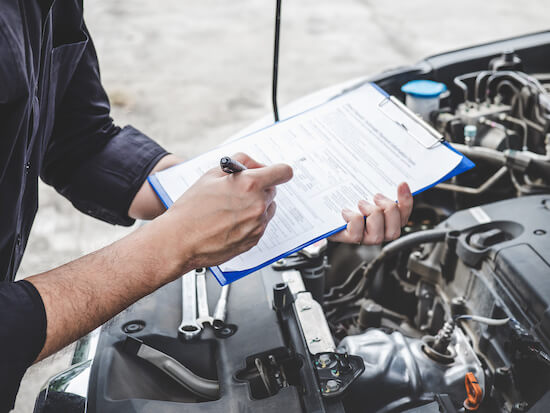A loss of a friend or family member is not easy. The mourning, sadness, and sometimes regrets that come with the loss oftentimes also comes with arranging their affairs. There are various ways paperwork is handled, one of which is having an administrator also known as an executor. They can be a surviving spouse, an attorney, family members, and the like.
Use eTags© to Quickly Complete Your DMV Service. Renewals, Title Transfers and More, All Online!
In this case, the deceased person has (before their death) appointed a legal representative to take care of all their affairs. Distributing their assets, allocating donations, handling inheritance, and so on. One of these assets may be a car they’ve left behind. The administrator can choose to sell the vehicle of the deceased.

If you reside in Maryland and have chosen to buy the (deceased) car, there’s a specific process for you to go through to get the certificate title in your name. Once process is finalized you become the legal owner of the car. Once you have the title, you must register the vehicle in your name to legally drive it. Title and registration can be done at the same time online with eTags should you choose to forgo the DMV lines.
First, you must make sure the deceased person’s administrator assigns you the Maryland car title. In other words, signs it over to you as you’re the new buyer. The administrator will use the existing title paying extra attention to the back section labeled Assignment of Ownership. This is to be completed and sign by the administrator. The existing Maryland title can be used as the actual application for title and registration.
Next, you’ll need Maryland Letters of Administration which the administrator will provide you with after stamping it with the seal of the register of wills. This part is the administrator’s responsibility.

Then comes the bill of sale for a recorded and legal proof that in fact the vehicle was sold to a new owner: you. Here too the administrator must sign the bill of sale and print their title. The buyer also has to sign. The bill of sale typically has details about the vehicle; the year, make, VIN, odometer reading, and the date it was sold.
In certain circumstances, the Maryland bill of sale must be notarized. If the vehicle is less than seven years old AND purchase price is at least $500 less than book value AND the excise tax is based on sale price not book value.
If you plan on registering the car for Maryland license plates at the same time as getting your title transfer, you must get a Maryland Safety Inspection Certificate. Since the deceased’s car is a used vehicle, it has to undergo a safety inspection.
SEE ALSO: SIX TIPS TO REGISTER VEHICLE IN MARYLAND FOR THE FIRST TIME
Typically, it’s the seller or in this case administrator that is required to get the safety inspection which will be valid for 90 days to give you time to register. Essentially the car is inspected at an authorized Maryland station. Technicians will check steering wheel, brakes, suspensions, tires, electrical components, exhaust system, and more.

You can apply for a title in your name with eTags online, and have the entire process handled by title and registration specialists. Just input a few details and let technology take care of the rest. Your new title, registration card, license plates, and Maryland stickers will arrive right at your doorstep.








